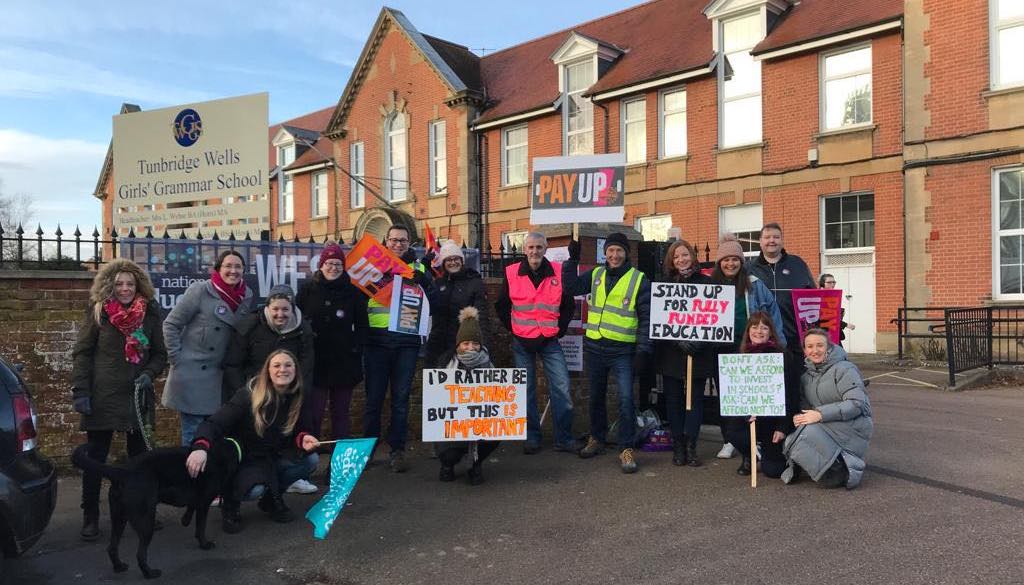Thousands of students will be missing classes again tomorrow (March 2) as teachers walk out if a planned strike goes ahead.
Last month (February 1) an estimated 7,000 school students from secondary schools Tunbridge Wells Girls’ Grammar School, Tunbridge Wells Grammar School for Boys, The Skinner’s’ School, St Gregory’s, Bennett Memorial Diocesan and primaries including Claremont, St Mark’s and St Matthew’s were affected by the strikes.
It is not known if the same schools will be impacted again as teachers are under no obligation to notify their schools if they are striking.
Local members from the National Education Union (NEU) will be joined by teachers in London and the South West, as they demand a fully-funded pay rise above inflation that does not come from the schools budget.
It comes as teachers were offered a five per cent pay rise from the Government –seven per cent behind inflation – and which the NEU has called a real-terms pay cut.
Three weeks ago, the Times reported on the first teachers’ strike, which saw around 200 members attend a march through the town centre from Calverley Grounds to the Millennium Clock.
Teachers in Tunbridge Wells are planning to walk out again on March 15 and 16.
Meanwhile, 11,000 ambulance workers across England and Wales will be walking out on Monday (March 6) including 3,500 members from South East Coast Ambulance Service (SECAmb) in its biggest action yet.
Members of the GMB union will not be turning up for work on Monday and will instead be picketing their stations, including the Paddock Wood Make Ready centre in Eldon Way.
Ambulance workers were offered a four per cent pay rise – an additional £1,400 per worker – but it was rejected by the union who want a figure closer to inflation.
The 14-hour strike from 12pm on March 6 to 2am on March 7, is the fifth strike undertaken by the GMB union in the last month, with their previous day of action being only last Monday (February 20).
Their next day of action will be March 20.
The NHS has seen some of the biggest strike action in its 75-year history and could now be under more scrutiny as junior doctors announce the dates of their 72-hour strike.
On February 21, 98 per cent of members from the British Medical Association (BMA) voted overwhelmingly in favour of action, which is expected to take place on March 13, 14 and 15.








